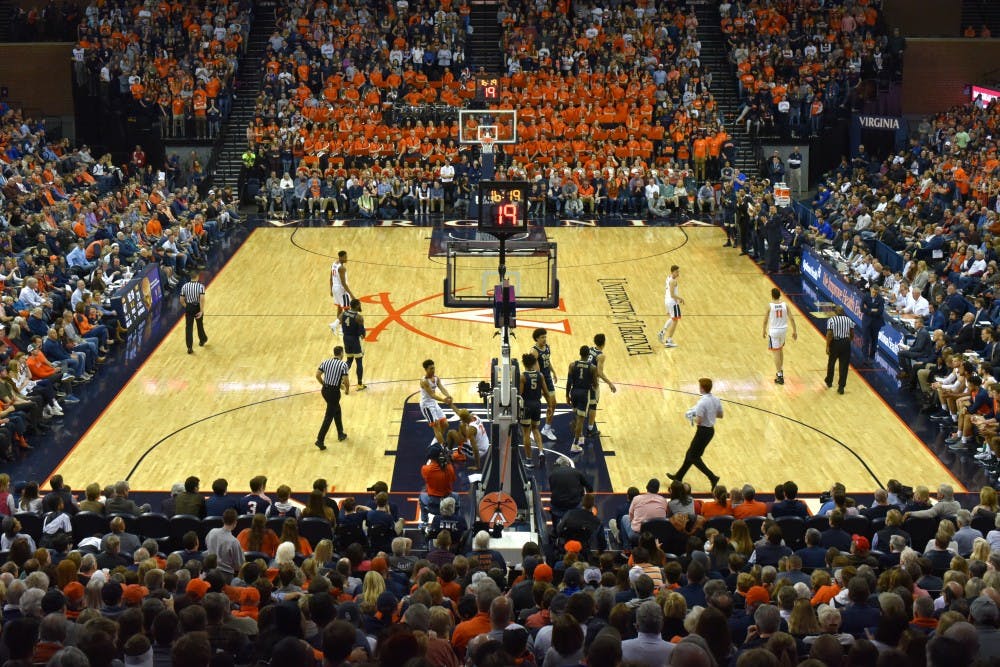With the start of the March Madness tournament, the perennial national interest in college basketball has again piqued. Every year, the tournament brings a spirited mixture of upsets, buzzer-beaters and Cinderella stories, all the while fans make foolhardy attempts to predict how all the madness will shape up. While these festivities are good-hearted in nature, it is important to critically examine how student-athletes — the most indispensable part of the tournament — are treated. More specifically, we believe it is time for the NCAA and NBA to relax unfair restrictions on athletes’ ability to earn money.
In particular, the NCAA rules on amateurism must be changed. However, we do not believe that the popular view that allowing schools to pay student-athletes is the best way to go about remedying this problem. Permitting monetary compensation to student-athletes would present multiple problems for college athletics. First, it would make college leagues even more top-heavy. As Cody McDavis, a law student and former Division I college basketball player, put it, “A handful of big sports programs would pay top dollar for a select few athletes, while almost every other college would get caught up in a bidding war it couldn’t afford.” Furthermore, paying players would likely result in large earnings disparities. Instead of providing assistance to athletes in need, the bulk of the earnings would probably end up in the hands of a few very talented athletes that make their schools the most money — and have the most power to force schools to bid up. The consequence of this would, of course, be that average athletes would receive little.
But it’s not just that earnings would be concentrated on the best athletes. They would also be heavily allocated to a few sports that are the most lucrative for schools, such as football and basketball. Athletes in other sports are likely to be left in the dust, despite the fact that they work as hard as and face many of the same challenges of football and basketball players. In particular, female athletes will doubtlessly be systematically underpaid for their work. All of these concerns are in addition to worries about how paying athletes will impact the integrity of the game that allows for the jovial environment in which college athletics — and especially March Madness — reside.
Instead, we believe that amateurism rules restricting the players’ ability to profit off of their name, picture or reputation must be eliminated. It stunts athletes’ ability to make money, but does not prevent many of the problems that not paying them does. Allowing players to do advertisements will not lead to a recruiting arms race because the schools will not be involved at all. Moreover, it will not hurt the integrity of the game. Student-athletes will still be amateurs in that they will not be paid for their ability to play a sport but rather for the public image that they cultivate. Allowing students to profit from advertisements will therefore incentivize them to create and maintain a good reputation, which could only have a positive impact on the game.
In addition to athletes being allowed to profit off of their name and image, they should be permitted to join the NBA immediately upon graduating high school. Currently, the NBA requires that athletes spend at least one year out of high school before entering the Draft, and many of these players decide to spend that year in college, which is also known as the “one and done”. This means that if a particular athlete wants to play for the top basketball league in the country, he may have to submit to a whole year’s worth of unpaid work and an inability to profit off of his public image. Arguments that this is necessary to prepare athletes for the NBA don’t hold water — many great players and former players joined the league straight out of high school, including LeBron James, Kobe Bryant and Dwight Howard. Nor would allowing high schoolers to go straight to the NBA undermine college athletics. According to NCAA statistics, only 1.2 percent of men’s college basketball players play in the NBA and even fewer high school players would make it to the NBA. This restriction is thus an unnecessary restraint on the freedom of athletes to choose to work for a salary instead of being an amateur.
Ultimately, student athletes should seek a college education not because they are forced to or because they are incentivized by a university-sponsored salary, but because they want to grow academically. It is not the role of an educational institution to compensate student-athletes, but it is only fair to allow these athletes to share in the profits that universities are reaping from their talents. Moreover, if an athlete decides that they would rather earn money playing sports professionally they should be allowed to do so instead of wasting their time only going to college for a year, when some have no intention of graduating. Relaxing these restrictions on athletes’ behavior would lead to fairer treatment of players without hurting the nature of college athletics as it now stands.
The Cavalier Daily Editorial Board is composed of the Executive Editor, the Editor-in-Chief, the two Opinion Editors and their Senior Associate. The board can be reached at eb@cavalierdaily.com.







